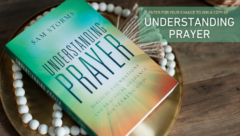If you keep up with Christian publishing for any length of time, you will eventually spot a curious phenomenon. Every now and again a scholarly book will show up and a lot of people will get really excited about it. It will be a book that, under normal circumstances, would be known among only the scholars. And yet this one will be released with accolades assuring the non-scholarly readers (like me!) that they, too, can benefit from it. This year’s first such book is Sinclair Ferguson’s The Whole Christ: Legalism, Antinomianism, and Gospel Assurance—Why the Marrow Controversy Still Matters. It has received those accolades and, just like they say, it is definitely worth the read.
The Whole Christ begins more than 250 years ago with a theological controversy that erupted in a small Scottish town—hardly the stuff of your average Christian book. The Marrow Controversy centered on Edward Fisher’s book The Marrow of Modern Divinity and pitted two groups of theologians against one another. The core issue was whether or not a person must first forsake his sins in order to come to Christ. The Marrow Men, those who agreed with Fisher’s book, believed that this demanded works as a precursor to faith and was, in that way, opposed to the free offer of the gospel. Their opponents taught that the gospel should only be offered to those who were beginning to show evidence of being among God’s elect. This syllogism describing their view may bring clarity: “Major premise: The saving grace of God in Christ is given to the elect alone. Minor premise: The elect are known by the forsaking of sin. Conclusion: Therefore forsaking sin is a prerequisite for saving grace.” Ferguson points to “The subtle movement from seeing forsaking sin as the fruit of grace that is rooted in election, to making the forsaking of sin the necessary precursor for experiencing that grace.” But here’s the problem: “Repentance, which is the fruit of grace, thus becomes a qualification for grace. This puts the cart before the horse. It stands the gospel on its head so that the proclamation of the gospel, with the call to faith in Christ, becomes conditional on something in the hearer. The gospel thus became a message of grace for the credentialed, not an offer of Christ to all with the promise of justification to the ungodly who believes.”
This was the starting place for the Marrow Controversy, but as the controversy unfolded it unearthed a whole host of related issues. The Whole Christ navigates them through “an extended reflection on theological and pastoral issues that arose in the early eighteenth century, viewed from the framework of the present day.” In other words, Ferguson looks at this controversy, dissects it, and then applies it to our day. And, as it happens, we, too, are struggling with issues related to legalism and antinomianism. That makes his book perfectly timed and a valuable contribution to the discussion about the role of the law, the role of obedience, in the Christian life.
And this is where his book takes off. Now Ferguson is going far beyond church history and bringing clarity to the way we are to live the Christian life. He is moving beyond history to do the work of a pastor. He carefully discusses how we become Christians, how we live as Christians, and how we can have assurance that we are Christians. With great precision he describes legalism and antinomianism, bringing clarity to their definitions and showing that they are not so much opposites of one another as they are “nonidentical twins that emerge from the same womb.” Antinomianism is, in its own way, an expression of legalism. “The antinomian is by nature a person with a legalistic heart. He or she becomes an antinomian in reaction. But this implies only a different view of law, not a more biblical one.”
This is a book full of treasures. Some of the treasures are on the surface waiting to be picked up, among them Ferguson’s one-line summaries of great truths: “It is misleading to say that God accepts us the way we are. Rather he accepts us despite the way we are” and “antinomianism and legalism are not so much antithetical to each other as they are both antithetical to grace.” Many of the other treasures yield only to care and effort, and in this way the book demands a fair bit from the reader. I suspect I would need to read it through once or twice more to have an advanced grasp of its subject matter. I would like to go back and do that very thing.
Ordinarily, we might assign a book like this to the bookshelves of the scholars and enthusiasts of church history. But The Whole Christ has too much to say to us to allow that to happen. It speaks too clearly and too urgently to issues that are every bit important to us as they were in the seventeenth century. I don’t think Derek Thomas is exaggerating when he says, “For my part, this is one of the most important and definitive books I have read in over four decades.”










